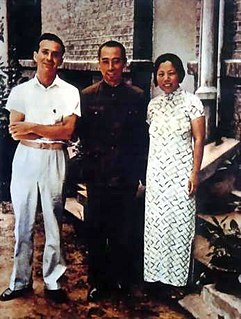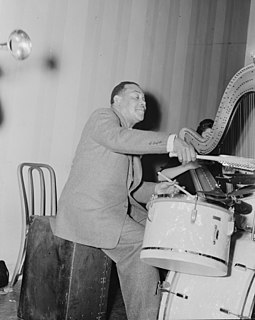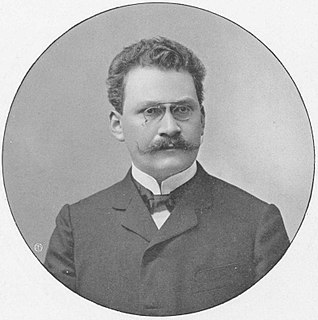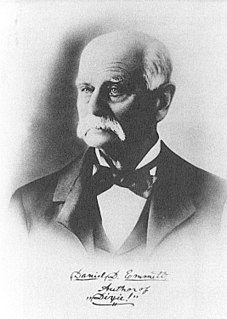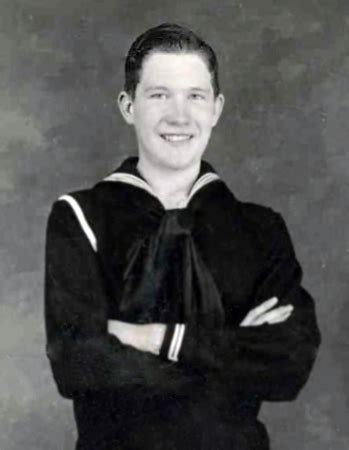Top 398 Cotton Quotes & Sayings - Page 7
Explore popular Cotton quotes.
Last updated on December 18, 2024.
We had our own civilization in Africa before we were captured and carried off to this land. We smelted iron, danced, made music and folk poems; we sculpted, worked in glass, spun cotton and wool, wove baskets and cloth. We invented a medium of exchange, mined silver and gold, made pottery and cutlery, we fashioned tools and utensils of brass, bronze, ivory, quartz, and granite. We had our own literature, our own systems of law, religion, medicine, science, and education.
One night she hid the pink cotton scarf from her raincoat in the pillowcase when the nurse came around to lock up her drawers and closets for the night. In the dark she had made a loop and tried to pull it tight around her throat. But always just as the air stopped coming and she felt the rushing grow louder in her ears, her hands would slacken and let go, and she would lie there panting for breath, cursing the dumb instinct in her body that fought to go on living
Mao lived very much like the rank and file of the Red Army. After ten years of leadership of the Reds, after hundreds of confiscations of property of landlords, officials and tax collectors, he owned only his blankets, and a few personal belongings, including two cotton uniforms. Although he is a Red Army commander as well as chairman, he wore on his coat collar only two Red bars that are the insignia of the ordinary Red soldier.
Who knows what exactly changed Tom Cotton`s mind. I mean, maybe it was that woman who said her husband was dying and only alive thanks to the Affordable Care Act. Maybe it was the young woman on your right side of your screen who said that without the treatment she could only receive through the Affordable Care Act she herself would be dead.
Our country is the best country in the world. We are swimming in prosperity and our President is the best president in the world. We have larger apples and better cotton and faster and more beautiful machines. This makes us the greatest country in the world. Unemployment is a myth. Dissatisfaction is a fable. In preparatory school America is beautiful. It is the gem of the ocean and it is too bad. It is bad because people believe it all. Because they become indifferent. Because they marry and reproduce and vote and they know nothing.
If Los Angeles is a woman reclining billboard model with collagen-puffed lips and silicone-inflated breasts, a woman in a magenta convertible with heart-shaped sunglasses and cotton candy hair; if Los Angeles is this woman, then the San Fernando Valley is her teenybopper sister. The teenybopper sister snaps bug stretchy pink bubbles over her tongue and checks her lipgloss in the rearview mirror, . . . Teeny plays the radio too loud and bites her nails, wondering if the glitter polish will poison her.
I feel that I have had a blow; but it is not, as I thought as a child, simply a blow from an enemy hidden behind the cotton wool of daily life; it is or will become a revelation of some order; it is a token of some real thing behind appearances; and I make it real by putting it into words. It is only by putting it into words that I make it whole; this wholeness means that it has lost its power to hurt me; it gives me, perhaps because by doing so I take away the pain, a great delight to put the severed parts together.
I used to buy all my shirts at Brooks Brothers, but that was completely ruined about 20 years ago. They discontinued the shirt I liked. If I had only known this - I mean, if you're going to discontinue an item that thousands and thousands of people buy, announce it. Say, 'We will no longer be making our excellent Brooks Brothers cotton shirts that we made for 5,000 years. We're going to change them in some awful way. We're alerting you so you can buy a lifetime supply.' Shirts don't go bad, they're not peaches.
When we send our children to school, they learn nothing about us other than we used to be cotton pickers. Why, your grandfather was Nat Turner; your grandfather was Toussaint L'Ouverture; your grandfather was Hannibal. It was your grandfather's hands who forged civilization and it was your grandmother's hands who rocked the cradle of civilization. But the textbooks tell our children nothing.
There were so many bands in New Orleans. But most of the musicians had day jobs, you know -- trades. They were bricklayers and carpenters and cigar makers and plasterers. Some had little businesses of their own -- coal and wood and vegetable stores. Some worked on the cotton exchange and some were porters. They had to work at other trades 'cause there were so many musicians, so many bands. It was the most musical town in the country.
I immediately cotton on to the fact that intelligence thus lightly used, and one-upmanshipishly displayed, is a birthmark giving me a two-coloured face, is a goitre, a hump on the back, webbed toes, and makes me stink like the night-man. Once again I learn what I knew on my very first day at Kensington School, and have carelessly forgotten, that it is more intelligent to appear less intelligent. I henceforth rein myself in, and publicly give back only what I have been given - fifty-six for seven- eights.
The rigid electron is in my view a monster in relation to Maxwell's equations, whose innermost harmony is the principle of relativity... the rigid electron is no working hypothesis, but a working hindrance. Approaching Maxwell's equations with the concept of the rigid electron seems to me the same thing as going to a concert with your ears stopped up with cotton wool. We must admire the courage and the power of the school of the rigid electron which leaps across the widest mathematical hurdles with fabulous hypotheses, with the hope to land safely over there on experimental-physical ground.
For a while I thought I was the dragon. I guess I can tell you that now. And, for a while, I thought I was the princess, cotton candy pink, sitting there in my room, in the tower of the castle, young and beautiful and in love and waiting for you with confidence but the princess looks into her mirror and only sees the princess, while I’m out here, slogging through the mud, breathing fire, and getting stabbed to death. Okay, so I’m the dragon. Big deal. You still get to be the hero. You get magic gloves! A fish that talks! You get eyes like flashlights!
I have scars on my hands from touching certain people...Certain heads, certain colours and textures of human hair leave permanent marks on me. Other things, too. Charlotte once ran away from me, outside the studio, and I grabbed her dress to stop her, to keep her near me. A yellow cotton dress I loved because it was too long for her. I still have a lemon-yellow mark on the palm of my right hand. Oh God, if I'm anything by a clinical name, I'm a kind of paranoiac in reverse. I suspect people of plotting to make me happy.
The white American man makes the white American woman maybe not superfluous but just a little kind of decoration. Not really important to turning around the wheels of the state. Well the black American woman has never been able to feel that way. No black American man at any time in our history in the United States has been able to feel that he didn't need that black woman right against him, shoulder to shoulder-in that cotton field, on the auction block, in the ghetto, wherever.
And he's pressing into her and she into him, bodies shivering, like they are two scared, lost children, starving, starving to be touched, to be held, by someone, anyone, the first one they can find who seems familiar enough, safe enough, strong enough to rescue them. They breathe, heavy. Hard. Their fingers strain at cotton. And then they slow down. Stop. Hold. Rest. Before one of them, or both, begins to sob. Before they break another piece that needs to be fixed.
The capitalist engine is first and last an engine of mass production which unavoidably also means production for the masses. . . . It is the cheap cloth, the cheap cotton and rayon fabric, boots, motorcars and so on that are the typical achievements of capitalist production, and not as a rule improvements that would mean much to the rich man. Queen Elizabeth owned silk stockings. The capitalist achievement does not typically consist in providing more silk stockings for queens but in bringing them within reach of factory girls.
A rich man's body is like a premium cotton pillow, white and soft and blank. ''Ours'' is different. My father's spine was a knotted rope, the kind that women use in villages to pull water from wells; the clavicle curved around his neck in high relief, like a dog's collar; cuts and nicks and scars, like little whip marks in his flesh, ran down his chest and waist, reaching down below his hip bones into his buttocks. The story of a poor man's life is written on his body, in a sharp pen.
I never, with my eyes, saw the mistreatment of any black person. Not once. Where we lived was all farmers. The blacks worked for the farmers. I hoed cotton with them. I'm with the blacks, because we're white trash. We're going across the field.... They're singing and happy. I never heard one of them, one black person, say, I tell you what: These doggone white people - not a word!... Pre-entitlement, pre-welfare, you say: Were they happy? They were godly; they were happy; no one was singing the blues.
For every nineteenth-century middle-class family that protected its wife and child within the family circle, there was an Irish ora German girl scrubbing floors in that home, a Welsh boy mining coal to keep the home-baked goodies warm, a black girl doing the family laundry, a black mother and child picking cotton to be made into clothes for the family, and a Jewish or an Italian daughter in a sweatshop making "ladies" dresses or artificial flowers for the family to purchase.
With any kind of physical test, I don't know what it is, I always seem to get competitive. Remember when you were in school and they'd do those hearing tests? And you'd really be listening hard, you know? I wanted to do unbelievable on the hearing test. I wanted them to come over to me after and go, 'We think you may have something close to super-hearing. What you heard was a cotton ball touching a piece of felt. We're sending the results to Washington, we'd like you to meet the President.'
Alas, Islam turned against science in the twelfth century. The most influential figure was the philosopher Abu Hamid al-Ghazzali, who argued in The Incoherence of the Philosophers against the very idea of laws of nature, on the ground that any such laws would put God's hands in chains. According to al-Ghazzali, a piece of cotton placed in a flame does not darken and smoulder because of the heat, but because God wants it to darken and smoulder. After al-Ghazzali, there was no more science worth mentioning in Islamic countries.
There's nothing to mourn about death any more than there is to mourn about the growing of a flower. What is terrible is not death but the lives people live or don't live up until their death. They don't honor their own lives ... their minds are full of cotton. They swallow God without thinking, they swallow country without thinking. Soon they forget how to think, they let others think for them.... Most people's deaths are a sham. There's nothing left to die.
Advising the average person to not concern herself with calories but instead to pay attention to hunger triggers and eating foods rick in nutrients--well, it's a wonderful concept. I also love the thought of unicorns jumping over cotton candy rainbows. I'm even considering taking up basketball to see if it makes me taller. Come on already! Suggesting that someone who struggles with his weight does not need to think about calories is as risky as suggesting you not look at price tags the next time you're in the market for a car.
Being a slave meant never having the stability of knowing your family would be together as many years as God designed it to be. It meant you could come back from picking cotton in a field to find that your children are gone, your husband's gone, your mother's gone. It meant knowing you are property that could be sold to the highest bidder, of value only to continue to support the plantation economy.
I talked about the summer of 1985, when I worked at an amusement park on Long Island, the kind of place where someone would pull a knife on you if they wanted a better prize than you were giving them. You found a lot of used needles beside the cotton-candy cart at the end of the night. It was a pretty white-trash, scary place. It was one in a series of terrible jobs I've had, coming from not much money and having no particularly resourceful skills. And at one point one of my friends, a writer on the show, Jenny Konner, said, "You should write about that."
It will be hard James but you come from sturdy peasant stock men who picked cotton and dammed rivers and built railroads and in the teeth of the most terrifying odds achieved an unassailable and monumental dignity You come from a long line of great poets some of the greatest poets since Homer. One of them said "The very time I thought I was lost My dungeon shook and my chains fell off." You know and I know that the country is celebrating one hundred years of freedom one hundred years too soon. We cannot be free until they are free. God bless you James and Godspeed.
I appeal to the contemptible speech made lately by Sir Robert Peel to an applauding House of Commons. 'Orders of merit,' said he, 'were the proper rewards of the military' (the desolators of the world in all ages). 'Men of science are better left to the applause of their own hearts.' Most learned Legislator! Most liberal cotton-spinner! Was your title the proper reward of military prowess? Pity you hold not the dungeon-keys of an English Inquisition! Perhaps Science, like creeds, would flourish best under a little persecution.
And so it was settled. Sam Gamgee married Rose Cotton in the spring of 1420 (which was also famous for its weddings), and they came and lived at Bag End. And if Sam thought himself lucky, Frodo knew that he was more lucky himself; for there was not a hobbit in the Shire that was looked after with such care. When the labours or repair had all been planned and set going he took to a quiet life, writing a good deal and going through all his notes. He resigned the office of Deputy Mayor at the Free Fair that Midsummer, and dear old Will Whitfoot had another seven years of presiding at Banquets.
Mom had just gotten back from Sydney, and she had brought me an immense, surpassingly blue butterfly, Papilio ulysses, mounted in a frame filled with cotton. I would hold it close to my face, so close I couldn't see anything but that blue. It would fill me with a feeling, a feeling I later tried to duplicate with alcohol and finally found again with Clare, a feeling of unity, oblivion, mindlessness in the best sense of the word.
I had a very down-to-earth product, my wrap dress, which was really a uniform. It was just a simple little cotton-jersey dress that everybody loved and everybody wore. That one dress sold about 3 or 4 million. I would see 20, 30 dresses walking down one block. All sorts of different women. It felt very good. Young and old, and fat and thin, and poor and rich.
Our government, National and State, must be freed from the sinister influence or control of special interests. Exactly as the special interests of cotton and slavery threatened our political integrity before the Civil War, so now the great special business interests too often control and corrupt the men and methods of government for their own profit. We must drive the special interests out of politics.
Those East Coast rich kids are a different breed, on a fast track to nowhere. Your friends in Seattle are downright Canadian in their niceness. None of you has a cell phone. The girls wear hoodies and big cotton underpants and walk around with tangled hair and smiling, adorned backpacks. Do you know how absolutely exotic it is that you haven’t been corrupted by fashion and pop culture? A month ago I mentioned Ben Stiller, and do you remember how you responded? ‘Who’s that?’ I loved you all over again.
Talk—half-talk, phrases that had no need to be finished, abstractions, Chinese bells played on with cotton-tipped sticks, mock orange blossoms painted on porcelain. The muffled, close, half-talk of soft-fleshed women. The men she had embraced, and the women, all washing against the resonance of my memory. Sound within sound, scene within scene, woman within woman—like acid revealing an invisible script. One woman within another eternally, in a far-reaching procession, shattering my mind into fragments, into quarter tones which no orchestral baton can ever make whole again.
When I think about the auto-industry and how it was one of the industries that brought all of these black men from the South to Michigan and other places to make more money than they could ever make in the cotton fields or the agricultural world of the South... what's happening now is all of that is closing down, and we know that it's going to reopen in Southern places, focusing on Mexican and other migrant workers to come and work cheaply and get none of the benefits.
Death comes to me again, a girl in a cotton slip, barefoot, giggling. It’s not so terrible she tells me, not like you think, all darkness and silence. There are windchimes and the smell of lemons, some days it rains, but more often the air is dry and sweet. I sit beneath the staircase built from hair and bone and listen to the voices of the living. I like it, she says, shaking the dust from her hair, especially when they fight, and when they sing.
He was tall, one of the tallest men she had ever seen. Dressed in jeans, boots and a cotton shirt. Thick black hair grew rakishly long, falling over the collar of his shirt. Intense brown eyes, almost the color of amber, surveyed the diner slowly before coming back to her. Electricity sizzled in the air then, as though invisible currents connected them, forcing her to recognize him on a primitive level. Not that she wouldn’t take notice anyway. He was power, strength, and so incredibly male that her breath caught at the sight of him.


